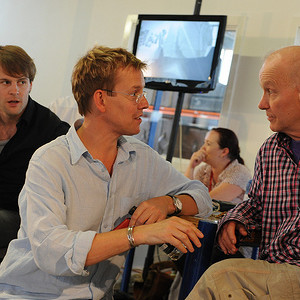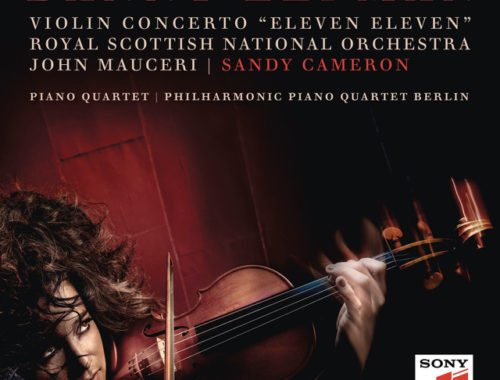Puccini “Il Trittico”, Royal Opera House
The accepted wisdom on Puccini’s trio of one-acters, Il Trittico, is that Gianni Schicchi is the masterpiece, Suor Angelica of very particular and questionable taste, with Il Tabarro, all shadow and melodrama, bringing up the rear. But should we now, in the light of Richard Jones’ revelatory staging of the central “altarpiece”, be revising assessments? Yes, yes, and yes.
You know from the moment the curtain goes up on Suor Angelica that Jones has cracked it. Miriam Buether’s striking set reveals a hospital ward of sick children, the sisters of mercy busily in attendance. As Sister Angelica (Ermonela Jaho) sits alone at the nurse’s station a very pale little boy approaches, a portent of terrible secret, her loss, and her sin. Never mind the words (the overworked libretto is something of an embarrassment in this first scene), the atmosphere is expectant, the orchestral detail beautifully choreographed.
And then comes Sister Angelica’s visitor – The Princess, her aunt – haughty and richly attired and in the person of Anna Larsson (marvellous) towering above her as only one’s nemesis can. The scene between them is electrifying, Angelica’s last hopes for her son dashed, and Jaho delivers the aria (“Senza mamma”) with bone-shaking intensity finding only a semblance of release in that seraphic final note. How I would love to see her Butterfly.
I wont reveal Jones’ brilliant solution to the opera’s unsettling dénouement but I will say that true to form he turns the kitsch religious symbolism on its head and intensifies a now credible tragedy by ingeniously replicating the moment that Sister Angelica’s illegitimate child was taken from her. Trust me, you’ll never see a finer production of the opera.
The clunky Il Tabarro lives only fleetingly in the memory though that, too, was accomplished in its way with furtive figures of the night beautifully etched into the stage narrative. Eva-Maria Westbroek and Aleksandrs Antonenko lustily voiced their dreams of a Parisian getaway and Antonio Pappano lavished care and affection and thunderous affirmation on every note.
Lucio Gallo was much more effective as the scheming Gianni Schicchi than he was as the cuckolded barge-owner and Jones’ gaudy and grubby 1960s staging, once again spot-on in its casting, served the comedic precision of the piece well. The sight of the deceased Buoso Donati’s hand stiffly protruding through the floorboards in a last bid for attention was the exclamation mark Dante didn’t reckon on.
Prom 74: The Last Night
You May Also Like

A Conversation With RICHARD TAYLOR: ‘The Go-Between’
02/09/2010
GRAMOPHONE Review: Bernstein Orchestral Works – Royal Liverpool Philharmonic/Lindberg
20/06/2018